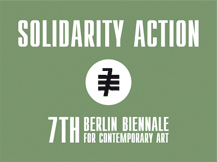I do not believe the role of art is to encourage democratic processes in a society, starting with the principle that art is not democratic. Certainly art, by nature, has the ability to produce a crosswise, autonomous, disenchanted vision, just as it has the power to stimulate a different awareness of the social and political reality of a country. But this function has to be recognized by the society, and the State has to contribute to this civilizing process by granting art means, places and opportunities to express the congruity of its existence. In Italy art struggles, curiously enough, to find its way into the list of activities seen as motors that guarantee the country’s growth, in both cultural and economic terms. Contemporary art, in general, is one of the first sectors to be drastically cut, and it has to operate with antiquated and demotivating fiscal regulations that discourage professional operators and artists, as well as public and private collectors. Beyond all this, it has suffered from the lack of commitment in public institutions and policy, including those that are supposed to take care of culture. To cope with this situation, different collective efforts have recently been organized: commissions of artists, curators and sector professionals to dialogue directly with the institutions and to assess the state of backwardness and semi-illegality with which public agencies have managed the cultural system until today. One of the points of the debate, to date, has had to do with the appointment of museum directors or curators inside the delegated municipal or ministerial structures, but nothing has been achieved by protests regarding the most recent public appointments. The main change would have to start with an overall recovery of ethics and the identification of micro-responsibilities (so to speak). In recent years the spread of less costly semi-professional figures and the official recognition of volunteer work have contributed to lower the level of cultural offerings. The ambiguous concept of non-profit, which undoubtedly functioned as a way of dealing with the lack of public support for art, has wound up by standing for an abstract entity, with activities that are more like a hobby than a profession. This misunderstanding, paradoxically, has been encouraged by the operators in the sector themselves. Private support for the cultural projects of these realities has been more moral and sporadic than concrete and economic. If the mentality, generally and specifically, does not change, it is hard to imagine a adjustment of the Italian situation to international standards, and it will be even harder to convince the Italian public and private authorities that contemporary art effectively has productive potential to contribute to the economic as well as the cultural growth of the country; to establish agreements of collaboration between the ministries of culture, tourism, education, foreign affairs, economics and finance. If the various pro-contemporary commissions could act in a more compact way (in Rome alone there are at least three of them) and would start to monitor the effective application of the duties of those operating in the world of art, as well as safeguarding their rights, they would be more convincing for the institutions. It is clear that both structural and legislative intervention has to be studied on a national level, not just in municipal and federalist terms. In Italy local maneuvers are dangerous: the risk is that of generating further fragmentation, unloading of responsibilities, monopolistic operations and nepotism.
EMANUELA NOBILE MINO
Art historian, critic and curator. From 2007 to 2009 was the artistic co-director of the Volume! Foundation in Rome. Creator and curator of Privato Romano Interno, an annual project of Galleria O.


